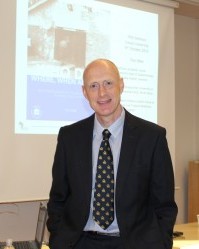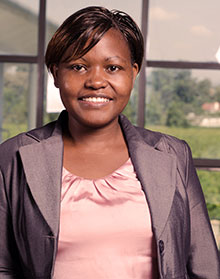| Dear Centre Leaders,
Greetings from the INDEPTH Secretariat. We hope you have had a good week.
We have the following items for your attention:
1. An INDEPTH look at global data collection in The Lancet Diabetes & Endocrinology
An editorial published in The The Lancet Diabetes & Endocrinology notes that the field of global health metrics is currently dominated by large scale modelling endeavours usually run by high-income country (HIC) research institutes working far from areas where information on burdens of various diseases can have the greatest effect in health system strengthening.
It mentions the Institute of Health Metric and Evaluation's (IHME) Global Burden of Disease (GBD) project is one such initiative, adding “but it is far from the only one.”
“Many research institutes have teams of researchers feeding samples of locally collected data into modelling algorithms to generate estimates of disease burden. The IHME project, though, is perhaps the most well recognised provider of population-based estimates of health and disease” the editorial says.
“It is therefore heartening to read through the programme of the annual International Network for the Demographic Evaluation of Populations and Their Health (INDEPTH) scientific conference, which is held in Addis Ababa on November 11–13, 2015. INDEPTH started in 1998 with the aim of making people visible, collecting data in a longitudinal manner using standardised methods and making that data available to all through publications and data sharing. The data comes from research groups in 20 low-income and middle-income countries (LMICs) in Asia, Africa, and Oceania that use Health and Demographic Surveillance Systems (HDSS) to capture information on over 3 million people; births, deaths, migration, and causes of death (including those due to non-communicable diseases) via verbal autopsy” it says.
The editorial notes that through INDEPTH’s new Comprehensive Health and Epidemiological Surveillance System (CHESS) initiative, research groups will be collecting biological data at their field site laboratories and integrating this with information collected via HDSS. Linking individuals' biological and health diagnosis data with HDSS information will require a patient identification and data capture system that could potentially be a microcosm of the sort of system that could capture data on a large scale in LMICs.
The editorial concluded on this note “People interested in data collection should collaborate to ensure synergy; now is the time to forgo individual ego and focus on shared achievements. INDEPTH, has started along this path. We sincerely hope that others will join them.”
Read more http://www.thelancet.com/journals/landia/article/PIIS2213-8587%2815%2900412-X/fulltext
2. CHESS: an innovative concept for a new generation of population surveillance
A paper from the INDEPTH Network in The Lancet Global Health notes that one of the major difficulties in assessment of the Millennium Development Goals (MDGs) has been the absence of effective measurability. Data of better quality and greater quantity, especially at the subnational level, must underpin the SDGs.
“We propose a new generation of population surveillance operations—the Comprehensive Health and Epidemiological Surveillance System (CHESS)—capable of timely delivery of high-quality data for disease-specific and pathogen-specific morbidity, together with data for overall and cause-specific mortality. In addition to disease causes and morbidities, CHESS will include full risk factor surveillance and address the full range of the rapidly transitioning burden of disease, including non-communicable diseases and external causes and their associated morbidities. Importantly, CHESS will include monitoring health systems and policy initiatives because they affect communities and households.” it says.
Read more http://www.thelancet.com/journals/langlo/article/PIIS2214-109X(15)00180-1/fulltext
3. Editor of leading Ghanaian newspaper welcomes INDEPTH
Policy Engagement and Communication Manager of the INDEPTH Network, Mr. David Mbulumi (picture - right), on 29 October 2015 paid a courtesy call on the Editor of The Ghanaian Times, Mr. Dave Agbenu. The Ghanaian Times is one of the two top daily newspapers in Ghana.
Welcoming the INDEPTH visitor, Mr. Agbenu recalled that the newspaper had given coverage to some INDEPTH activities in the past and gave the assurance that "the doors of the corporation are always open and we will continue to support the Network."
The New Times Corporation publishes The Ghanaian Times (daily), The Spectator (weekly) and Sporting Times (sports paper).
According to Mr. Mbulumi, the visit was part of his programme to introduce himself and the work of the Network to media organisations.
He noted that as the Policy Engagement and Communication Manager, there was the need to establish and maintain closer relationship with media organisations in the quest to give INDEPTH more visibility.
For his part, Mr. Agbenu, said the paper provides a public service by providing a platform for individuals, groups, organisations and others to air their views.
He said the paper focuses more on health, education and development journalism and information that will be of benefit to the society.
He said it was important for the paper to publish accurate, factual stories and be responsible by not sensationalising stories.
4. Residential Status (Urban, Rural, Peri-Urban)
Increasingly there is interest in knowing the population dynamics of people in urban and peri-urban areas in LMICs. Many HDSSs collect information regarding the location of residential units in urban, peri-urban and rural areas. We have presented in the attached the information we have. We would appreciate if the other centres complete the table and email to Martin: martin.bangha@indepth-network.org
5. WHO, AAU support ISC
Various organisations in Ethiopia have offered to give financial support to this year's INDEPTH Scientific Conference to be held in Addis Ababa in November 2015. So far the World Health Organisation (WHO) -Ethiopia and Addis Ababa University have pledged financial support to cover the cost for the local participants from Federal Ministry of Health (FMOH), Regional health Offices and all presidents of the Universities in Ethiopia. The FMOH will sponsor a social evening event for delegates.
6. Tackling malnutrition: a systematic review of 15-year research evidence from INDEPTH HDSS
The paper by Samuelina S. Arthur of the INDEPTH Secretariat provides a systematic review to assess research conducted by the International Network for the Demographic Evaluation of Populations and their Health (INDEPTH) of health and demographic surveillance systems (HDSSs) over a 15-year period on malnutrition, its determinants, the effects of under and over nutrition, and intervention research on malnutrition in low- and middle-income countries (LMICs).
The paper notes that although INDEPTH has expanded the global knowledge base on nutrition, many questions remain unresolved. There is a need for more investment in nutrition research in LMICs in order to generate evidence to inform policies in these settings.
The paper was published in Global Health Action. Congrats to the authors!
Read more http://www.globalhealthaction.net/index.php/gha/article/view/28298
7. ISC/AGM 2015 Programme
Programme: Please see the draft programme of the ISC/AGM 2015 attached and kindly circulate. Note that we have scheduled special sessions for editors of world’s leading health and scientific journals. You can also download here.
8. Meet our graduates from the INDEPTH-funded MSc Programme at the University of the Witwatersrand, Johannesburg, South Africa
This series of short profiles is to introduce the more than 30 HDSS scientists who have been funded by INDEPTH to pursue the MSc in Population-based Field Epidemiology at the University of the Witwatersrand in Johannesburg. Scholarships for this programme have been graciously provided by Sida, Rockefeller Foundation and the Gates Foundation.
Our personality for today is Pallavi Sachin Lele of Vadu HDSS, India.
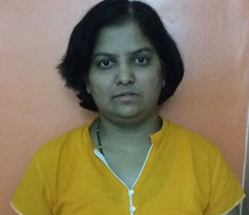 Full Name: Pallavi Sachin Lele Full Name: Pallavi Sachin Lele
Position before the programme: Social scientist / Study coordinator at Vadu HDSS, KEM Hospital Research Centre, India
Current Position: Senior Scientist/ Project Manager Vadu HDSS at KEM Hospital Research Centre, Pune, India.
Student years at Wits University: 2006 - 2007
Host HDSS Centre for the field attachment: Navrongo HDSS, Ghana
Currently Pallavi is responsible for the management of epidemiological and social science studies including data analysis and scientific writing at Vadu. She is also responsible for training HDSS field team. Pallavi serves as an alternate contact for Vadu HDSS for INDEPTH Network. Pallavi assists site leader in mentoring MSc students coming to Vadu for their projects.
Pallavi says ”WITS INDEPTH MSc impressed upon my mind that though one cannot create ideal/experimental conditions in epidemiological studies similar to laboratory, one can use available evidence appreciating variations associated with outcomes and exposures. It also impressed upon my mind the necessity of HDSSs in public health studies”.
"INDEPTH WITs MSc not only brought me insights to the subject of epidemiology but also enabled exposure to faculty members from many parts of the world and fellow students from other HDSSs. I returned enriched in terms of skills as a public health researcher and as an individual" she added
According to Pallavi, going to WITs, attending some sessions at Agincourt, writing protocol, getting it approved and then going to Navrongo was a good miniature journey for real life activities of any researcher.
"I wish I am able to reflect all these experiences in my work" she said.
I am extremely grateful to INDEPTH Network and Prof Osman Sankoh and his team for granting fellowship to undertake field based MSc programme at WITS.
My earnest thanks to Prof Sharon Fonn, Dr. Steve Tollman, Dr. KS Tint, Dr Kirstein Klipsteine-Grobusch, Dr Ronell Kellermen, Dr Edmore Marinda, Mr. Lawrence Mpinga, Ms Lindy Mataboge for their support while at WITS.
Field residency was an enriching experience and I’m thankful to Dr Abraham Hodgson, then Director of Navrongo Health Research Centre, Dr Cornelius Debbpur (my supervisor) and their data management, research and administration teams for their support during my stay at Navrongo.
Very special thanks to my supervisors for MSc project Dr Cornelius Debpuur, HDSS Navrongo and Dr Enid Schatz, Visiting faculty at WITS SPH for extremely supportive and involved supervision.
My sincere gratitude to Dr VS Padbidri, Director, KEM Hospital Research Centre, Pune, India; Dr Siddhivinayak Hirve, Director, Vadu Rural Health Program, Dr Sanjay Juvekar, Officer-in-Charge, Vadu HDSS for giving me an opportunity to undertake Master level training in field based Epidemiology.
Pallavi has co-authored the following publications:
Chadha, M. S., Hirve, S., Dawood, F. S., Lele, P., Deoshatwar, A., Sambhudas, S., … Mishra, A. C. (2013). Burden of Seasonal and Pandemic Influenza-Associated Hospitalization during and after 2009 A(H1N1)pdm09 Pandemic in a Rural Community in India. PLoS ONE, 8(5), e55918. http://doi.org/10.1371/journal.pone.0055918
Hirve, S., Chadha, M., Lele, P., Lafond, K. E., Deoshatwar, A., Sambhudas, S., … Mishra, A. (2012). Performance of case definitions used for influenza surveillance among hospitalized patients in a rural area of India. Bulletin of the World Health Organization, 90(11), 804–12. http://doi.org/10.2471/BLT.12.108837
Hirve, S., Juvekar, S., Lele, P., & Agarwal, D. (2010). Social gradients in self-reported health and well-being among adults aged 50 years and over in Pune District, India. Global Health Action, 3(0), 88–95. http://doi.org/10.3402/gha.v3i0.2128
Hirve, S., Juvekar, S., Sambhudas, S., Lele, P., Blomstedt, Y., Wall, S., … Ng, N. (2012). Does self-rated health predict death in adults aged 50 years and above in India? Evidence from a rural population under health and demographic surveillance. International Journal of Epidemiology, 41(6), 1719–1727. http://doi.org/10.1093/ije/dys163
Hirve, S., Krishnan, A., Dawood, F. S., Lele, P., Saha, S., Rai, S., … Chadha, M. (2015). Incidence of influenza-associated hospitalization in rural communities in western and northern India, 2010–2012: A multi-site population-based study. Journal of Infection, 70(2), 160–170. http://doi.org/10.1016/j.jinf.2014.08.015
Hirve, S., Lele, P., Sundaram, N., Chavan, U., Weiss, M., Steinmann, P., & Juvekar, S. (2015). Psychosocial stress associated with sanitation practices: experiences of women in a rural community in India. Journal of Water, Sanitation and Hygiene for Development, 5(1), 115. http://doi.org/10.2166/washdev.2014.110
Hirve, S., Verdes, E., Lele, P., Juvekar, S., Blomstedt, Y., Tollman, S., … Ng, N. (2014). Evaluating Reporting Heterogeneity in Self-Rated Health Among Adults Aged 50 Years and Above in India: An Anchoring Vignettes Analytic Approach. Journal of Aging and Health, 26(6), 1015–1031. http://doi.org/10.1177/0898264314535634
Steinmann, P., Bratschi, M. W., Lele, P., Chavan, U., Sundaram, N., Weiss, M. G., … Hirve, S. (2015). Availability and satisfactoriness of latrines and hand washing stations in health facilities, and role in health seeking behavior of women: evidence from rural Pune district, India. Journal of Water, Sanitation and Hygiene for Development, 5(3), 474. http://doi.org/10.2166/washdev.2015.101
Streatfield, P. K., Khan, W. a, Bhuiya, A., Hanifi, S. M. a, & .... Sanjay Juvekar, P. L. E. A. (2014). Adult non-communicable disease mortality in Africa and Asia: evidence from INDEPTH Health and Demographic Surveillance System sites. Global Health Action, 25365(7). http://doi.org/10.3402/gha.v7.25368
|



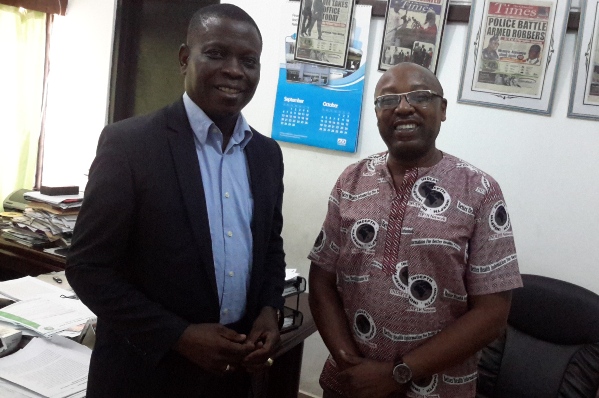


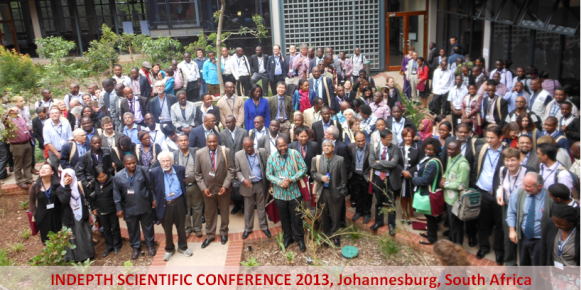
 Full Name: Pallavi Sachin Lele
Full Name: Pallavi Sachin Lele
